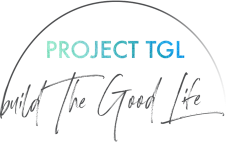Listen to this blog post (or download the audio file):
I’m sitting cross-legged on the sofa, feeling my breath flow in through my nostrils. As it fills with air, my belly strains outward against the waistband of my skirt. Unbidden, a thought comes to mind: Oh, I forgot to send that email about our new process at work. “Now remember,” says a disembodied voice, “if your attention starts to drift, that’s OK, just return your focus to your breath.” But this is important, my inner voice says. I already forgot that email once, I can’t afford to forget it again! I focus on my breathing. Immediately I notice that my throat is slightly constricted, an involuntary tensing which persists through the remainder of my 10-minute meditation.
If you have even an inkling of interest in living the Good Life, you’ve likely heard a lot about the benefits of mindfulness in recent years. The idea behind mindfulness is appealing: training your mind to be wholly present, so that you can fully experience each moment. But in practice, I really struggled with practising mindfulness. At first glance, mindfulness appears to be in tension with a lot of things I value: creativity, organisation, daydreaming. Mindfulness is focused on the present. Creativity and daydreaming require letting your mind wander to unexpected places (the opposite of focus); being highly organised requires thinking carefully about the future.
Sometime after my initial foray into mindfulness meditation, I read David Allen’s landmark book Getting Things Done (2015, first published 2001). Mindfulness and the Getting Things Done system (GTD) are two very different approaches to getting the most out of life. You could be forgiven for assuming that the two are completely unrelated. But scratch below the surface, and you find a surprising commonality.
Allen’s mantra is: “Your head is for having ideas – not for holding them.” The thing that stops us from relaxing, from approaching our tasks with the level of calm, productive, measured control we’d like to experience, is that unwanted thoughts are bothering us all the time, demanding attention when we least want to give it to them. Allen’s aim – the aim of the entire GTD system – is to free us from these recurring unwanted thoughts, to free us from the need to hang onto them until we’re able to act on them. Sounds a lot like mindfulness, right?
Your head is for having ideas – not for holding them.
But Allen’s advice is not merely to dismiss these thoughts and refocus on the present moment. This would be useless, because “research has now proven that a significant part of your psyche cannot help but keep track of your open loops,” detracting “from anything else you need to think about, diminishing your capacity to perform.” (p.18) Instead, Allen recommends continuously and systematically closing your open loops:
You’re having a nice dinner with your partner, and you suddenly remember that you forgot to send an important work email. Instead of trying to dismiss the thought (it will keep coming back anyway), or hang onto it until dinner is over (very unromantic), you write the thought down (“send email re: new process”). Since you regularly scan your notepad to check for incomplete tasks, now you can be sure you’ll actually send that email. You don’t need to think about it again, and can direct your attention to your romantic dinner.
See what just happened? Having an organisational system is exactly what enabled you to be mindful in the moment. Your open loops will continue to bother you until you do something about them. Consequently, organisation is essential to mindful living.
I think the same is true for spontaneity. Maybe you’re one of those people who is always up for dropping everything to do something fun and unplanned, regardless of the circumstances. But I’m not one of those people. A lot of people aren’t one of those people. It’s hard to feel comfortable dropping everything when you have a bunch of open loops tugging at the corners of your awareness, insisting that you give them attention. True spontaneity requires you to really live in the moment, and that’s hard to do when a thousand things from other moments keep popping up in your mind. But when you have an organisational system that you trust, when you know that you’ve tracked everything that needs to be done and that nothing important will get lost or forgotten, it’s easy to say “Hey, let’s do something completely different today! All this will still be here tomorrow.” Because it will still be there tomorrow, right where you left it, in your organisational system.
So not only will being organised help you to truly live in the present moment, it will also free you to be spontaneous more often, to confidently give up your cares for an hour or a day and embark on an adventure. What’s not to love about that?




